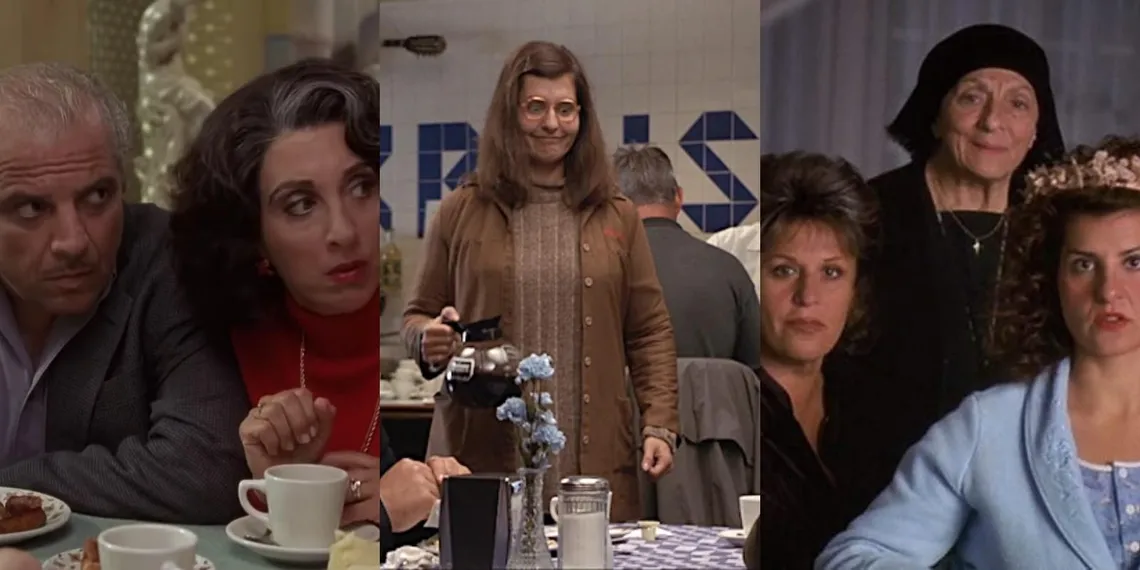By Amalia Theocharidou,
As a Greek, most of us are familiar with the all-known stories of family members being immigrants in the USA or Canada, the infamous relatives that started from nothing and through a path of hard work managed to build new lives but without forgetting where they came from. This mostly common incident couldn’t have skipped the cinematic exposure and was showcased to us through the widely known trilogy of movies, “My Big Fat Greek wedding”. But how accurate is exactly that representation?
The movie starts by introducing to us, Toula, the female lead who is dedicated to the family restaurant owned by her immigrant parents, called “The Dancing Zorbas”. Focused on her heritage and the fact that she’s not particularly pretty, she lives by her father’s idea that her life purpose is to find a Greek guy and make a family that will eventually return to Greece. But as time goes by, she falls in love with an American teacher named Ian, who is a bit of a contradiction to the idea of a traditional Greek guy her father wants her to marry. As the couple decides to be wedded, we follow a series of events in Ian’s conservative family and he also comes in touch with the Greek customs and people.
As the last movie of the trilogy was out just in 2023, one can observe the critics’ backlash as they called it, “nationalism through the patriarchy sphere” and it is easy to spot why. Throughout the movie, it is stated that a woman’s place is only within the house, providing food for her husband and offspring. The patriarchic points continue to the fact that Toula’s dad determines her life so much to the point she needs to ask for his permission to work at her aunt’s travel agency even though she’s in her 30s. Continuing from the agency matter, many Greeks themselves have noticed the strong kitsch aspect attached to the character’s daily life. Business names like “Dancing Zorbas”, applying Windex to all kind of injuries, and dressing up in an extravagant but old-fashioned way not only showcase a false image of the people but also underestimates the mindset of the American Greeks.

Toula’s family is loud and for her, this is due to their Greek genes because what kind of Greek isn’t loud? Living in a community of loud and talkative people, it is easy to guess the outcome of Toula’s father’s decision to break the couple apart by setting up dates for Toula but with “traditional” Greek men only. Throughout these dinner scenes, we see mid-looking men, eating poorly, being rude and even disgusting, with no table manners, and even having a huge age gap. What one might find comic, hides a whole perspective and mindset of an entire country. Giving out the impression that a Greek father only cares about continuing the bloodline at whatever cost, it is only normal that it earns negative reactions. Continuing the train of “comedy”, one experiences the Greek customs and “behavior” through the eyes of Ian’s conservative family when they meet Toula’s family. Loud, talkative, and with no boundaries are some adjectives that can be used to characterize them as we see Toula’s aunt oversharing way too sensitive medical issues with the excuse that they’re now family and also getting them drunk with way too many drinks. At what cost the Greek culture should be so extravagant and just for laughs? (Kenny, 2022).
As the newest movie continues to thrive in the cinema, the opinions vary. What is the proper way to export culture and how much of a Greek one needs to be to be portrayed? But as this type of movie continues to be on display, we shouldn’t be surprised by all the stereotypical anecdotes of Greeks trending abroad. The movie’s reply is simple: if someone’s feelings are hurt, apply Windex.
References
- Kenny, G. (2022). The Problematics: Is ‘My Big Fat Greek Wedding’ A Stereotype Parade Or Simply A Paragon Of Ethnic Humor? Available here




